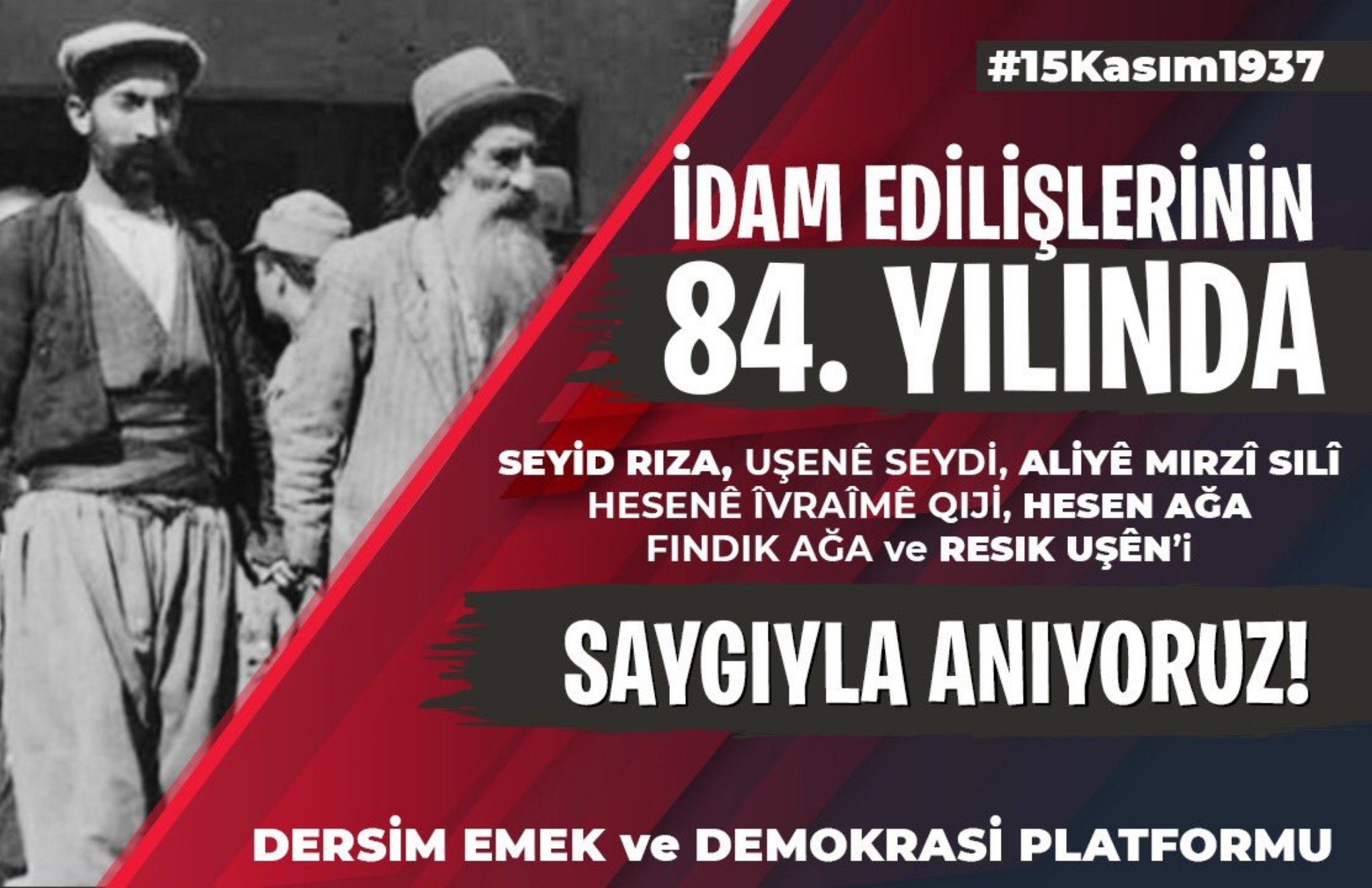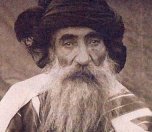Click to read the article in Turkish / Kurdish
The Tunceli Chief Public Prosecutor's Office has launched an investigation against the ones who distributed leaflets inviting people to the commemoration in Dersim marking the 84th year since Seyit Rıza and his friends were executed in Turkey's eastern province of Elazığ.
The people who distributed the leaflets about the ceremony to be held by the Dersim Labor and Democracy Platform have been charged with "praising the crime and the criminal". As part of the investigation, several representatives of political parties, trade unions and NGOs, including the following, have been summoned to depose at the Tunceli Security Directorate:
Peoples' Democratic Party (HDP) Dersim Provincial Co-Chairs İbrahim Kasun and Nurşat Yeşil, HDP Merkez District Co-Chair Özlem Toprak, HDP Provincial executive Yasemin Söylemez, Democratic Alevi Associations (DAD) member Hıdır Yılmaz, Dersim Research Center (DAM) Chair Selman Yeşilgöz and dismissed Akpazar District Co-Mayor Orhan Çelebi.
What is in the leaflets?
The leaflets distributed on November 12 briefly read:
"It is our call to our people: We commemorate Seyit Rıza, Uşenê Seydi, Fındık Aga, Resik Hüseyin, Aliye Mırzê Sıli, Hesenê İvraime Qıjî, Hesen Aga, who were executed at the Elazığ Buğday Square on November 15, 1937, in the 84th year of their execution."
'Erdoğan apologized, but now...'
Akpazar Co-Mayor Orhan Çelebi, dismissed with a trustee appointed in his place, gave his statement as part of the investigation. He said:
"Before the press statement, the Governor's Office banned meetings and demonstrations due to the pandemic. We said, in our statement, that it was not about the pandemic, but was a political decision. They both banned it and exerted a huge pressure on the day of the press statement. We see the prosecutor's investigation as something complementary."
Recalling that President and Justice and Development Party (AKP) Chair Recep Tayyip Erdoğan previously apologized for the Dersim massacre, Orhan Çelebi briefly added: "At that time, considering his own political interests, he said, 'If an apology is to be offered on behalf of the state, I apologize.' Today, they are trying to portray Seyit Rıza and his friends as criminals. We will continue struggling against all this pressure."
Banners removed as well
The banners of the Dersim Labor and Democracy Platform about the commemoration were also removed by the Tunceli Security Directorate.
About Seyit Rıza
Even though the exact birth date of Seyit Rıza is unknown, it is commonly accepted that he was born in 1863 in Pulur Lirtik Village.
He was an Alevi Zaza-Kurd, a political leader of the Alevi Zazas of Dersim, a religious figure and the leader of the Dersim movement in Turkey.
He was executed on November 15, 1937.
In addition to Rıza, 58 people were tried at the Independence Court set up in Elazığ. The defendants were not given the right to defend themselves.
The notables of Dersim were tried on charge of "sedition". Six people including Seyit Rıza were sentenced to capital punishment. The other defendants were sentenced to lifetime imprisonment.
His final moments were witnessed by İhsan Sabri Çağlayangil:
"Seyid Rıza understood the situation immediately when he saw the gallows. 'You will hang me,' he said. Then he turned to me and asked: 'Did you come from Ankara to hang me?' We exchanged glances. It was the first time I faced a man who was going to be hanged. He flashed a smile at me. The prosecutor asked whether he wanted to pray. He didn't. We asked for his last words. 'I have forty liras and a watch. You will give them to my son,' he said.
"We brought him to the square. It was cold and deserted. However, Seyid Rıza addressed the silence and emptiness as though the square were full of people. 'We are the sons of Karbala. We are blameless. It is shameful. It is cruel. It is murder!' he said. I had goosebumps. The old man walked briskly to the gallows and shoved the hangman out of the way. He put the rope around his neck and kicked the chair, executing himself... When Seyid Rıza was hanged, his son's voice could be heard from the side: 'I'll be your slave! I'll be your muse! Feel some pity for my youth, don't kill me!'." (KÖ/SD)
* Source: Evrensel, Mezopotamya Agency (MA)





